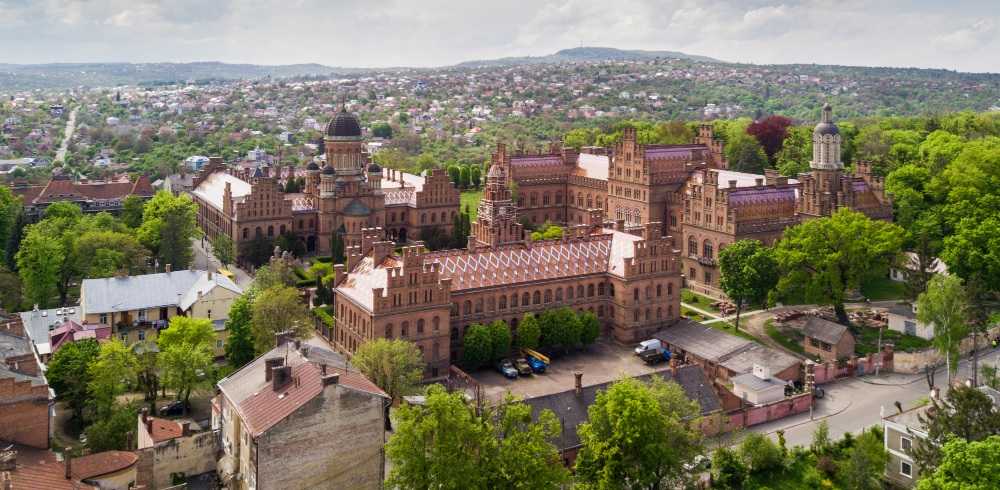History
1876
International ranking
55
Website
www.bristol.ac.uk
University of Bristol UK Introduction
Situated in the beautiful city of Bristol, England, the University of Bristol stands tall as a distinguished institution, celebrated for its commitment to academic excellence since its establishment in 1876. Delving deeper into the fascinating realm of this esteemed university, this article aims to illuminate the historical significance, contemporary standing, exceptional features, and notable alumni associated with the University of Bristol. Moreover, readers will become acquainted with pertinent facts concerning rankings, campus life, and programmes offered across varied disciplines.
University of Bristol UK Historical
Founded nearly 150 years ago, the University of Bristol boasts a storied past marked by progressive milestones. Initially established as University College, Bristol, it later received its royal charter in 1909—granted by Edward VII—which officially transformed it into a full-fledged university. Amongst its earliest accomplishments was admitting women equally alongside men, a bold move during those days. Furthermore, the university played host to prominent intellectuals such as Albert Einstein, Paul Dirac, and Dorothy Hodgkin, thereby solidifying its position as a hub of learning and innovation.
Read More: UK Universities
Rankings & Reputation of the University of Bristol
Year upon year, the University of Bristol maintains impressive showings in reputed global ranking systems:
QS World Rankings
58th globally (out of 1,300 institutions) and 10th in the UK (out of 121 institutions)
THE World Rankings
65th globally (out of 1,662 institutions) and 11th in the UK (out of 132 institutions)
ARWU Shanghai Rankings
88th globally (out of 1,800 institutions) and 12th in the UK (out of 121 institutions)
Moreover, Bristol secures enviable spots in domain-specific rankings, placing 52nd in Engineering & Technology (THE), 56th in Life Sciences & Biomedicine (ARWU), and 70th in Natural Sciences (QS). Such consistent acknowledgement bolsters the university’s reputation as a premier destination for higher education seekers.
Campus Life at the University of Bristol in UK
Life at the University of Bristol transcends mere academics, extending to encompass a thriving cultural scene brimming with events, festivals, and performances. Annual highlights comprise the Bristol Balloon Fiesta, Harbour Festival, and Slapstick Comedy Festival, enticing locals and visitors alike. Beyond entertainment, student welfare remains paramount, supported by dedicated services catering to mental health, disability assistance, and financial advisory, ensuring holistic care for every pupil.
Programme Offerings at the University of Bristol
Spanning six faculties, the University of Bristol presents an extensive array of undergraduate and postgraduate courses spanning arts, engineering, law, life sciences, physical sciences, and social sciences. Enrolled students benefit from small class sizes facilitating interactive discussions, access to esteemed faculty members, and ample networking possibilities—hallmark traits engendering success stories synonymous with Bristol graduates.
Read More: University of Glasgow UK
Conclusion
Undoubtedly, the University of Bristol emerges as a paragon of British academe, steeped in heritage yet forward-looking, committed to fostering brilliance across disparate spheres. Embodying ingenuity, resilience, and diversity, it serves as an incubator for tomorrow’s leaders, thinkers, creators, and innovators. Choosing to matriculate at the University of Bristol guarantees an unforgettable odyssey replete with intellectual rigour, personal transformation, and enduring memories.
FAQs About University of Bristol UK
Does the University of Bristol accept international students?
Yes, the University of Bristol welcomes applications from students hailing from diverse geographical locales, fostering a truly global community.
How much does it cost to study at the University of Bristol?
Fees vary depending on programme type and nationality. Detailed information can be accessed on the official website under ‘Tuition Fees’.
What accommodation options does the University of Bristol provide?
On-campus residences accommodate roughly 5,500 students annually, supplemented by privately owned housing alternatives listed on the university’s ‘Accommodation Office’ platform.
What scholarships are available for prospective students?
Numerous awards, bursaries, and grants exist for incoming scholars, outlined exhaustively on the ‘Financial Support’ segment of the official site.
When are application cycles open for the next intake?
Application windows generally span September to October for commencement in subsequent autumn term, though precise dates fluctuate periodically; consult the ‘Admissions’ section on the institutional website for updated timelines.

